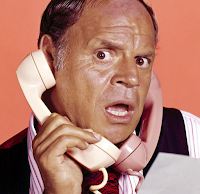Mooncop
Written and Drawn by Tom Gauld
Published by Drawn & Quarterly
Tom Gauld’s Mooncop is a very simple story. It’s about isolation and loneliness but it’s never isolated or lonely. Gauld imagines a world of a lot of unfulfilled promises that have been abandoned and only a few caretakers remain to watch over the long-forgotten promises. The dream of colonizing the moon is still a strong one for us today; whether it’s a dream of solving overpopulation of our world or some villainous moon base, we all have dreams about living on the moon in zero gravity and away from the everydayness of life on Earth. That’s what drove mankind to the moon in the first place. And Gauld imagines a world where the Apollo missions led to people actually living on the moon and realizing that maybe life in outer space doesn’t live up to our dreams.
Essentially, the moon is being downsized as people are moving from the moon back to Earth. The one person who’s not leaving is the one cop who patrols the moon. It’s not like he’s taking down mafia bosses or saving people from deadly crimes. He finds runaways and missing dogs. And like every cop, he likes the occasional donut. It’s not the stuff of police procedurals. Instead, the officer’s life is rather mundane. There’s not a lot going on and there’s actually less happening every day.
Gauld’s moonscapes are full of wide, empty vistas and stars fields. They only highlight the officer’s isolation as the Earth appears in the sky, hanging over the officer’s life as a reminder of everything that he doesn’t have. As the moon’s colonists abandon their lunar home, the officer begins to think that maybe he should put in for a transfer as well but he’s never a character that seems anything other than at peace with his position. It’s not resentment, fear or loneliness that drives him to request the transfer. If anything, maybe it’s the lack of momentum in his life that he thinks he can jumpstart that nudges him toward action.
Gauld’s moonscapes are full of wide, empty vistas and stars fields. They only highlight the officer’s isolation as the Earth appears in the sky, hanging over the officer’s life as a reminder of everything that he doesn’t have. As the moon’s colonists abandon their lunar home, the officer begins to think that maybe he should put in for a transfer as well but he’s never a character that seems anything other than at peace with his position. It’s not resentment, fear or loneliness that drives him to request the transfer. If anything, maybe it’s the lack of momentum in his life that he thinks he can jumpstart that nudges him toward action.
We almost never see Gauld’s characters in anything other than side profiles. This story reveals itself to the audience, with us nearly always standing at a 90-degree angle to the officer and the other lunar citizens. This technique creates distance between the storyteller and his audience, another tool in Gauld’s arsenal of isolation. Gauld never shows a full facial expression or a strong reaction to anything that’s happening in this officer’s life. It highlights a sense of resignation that overcomes any reading of depression or loneliness in Mooncop.
In this book, Gauld does a lot with only a little. The reserved nature of his work runs through the art, through the narrative, and through the characters. There are no grand gestures on display in this book as Gauld embraces the solitude and quietness of the moon. Ultimately, that’s what the book is about, the quietness of life. There are plenty of ways to read this as a sad and lonely story but Gauld never gives into that depression for too long. Instead, his characters live in the moments of relative solitude and they accept that. Not everyone needs the hustle and bustle of the life that waits for them on the world below them.










